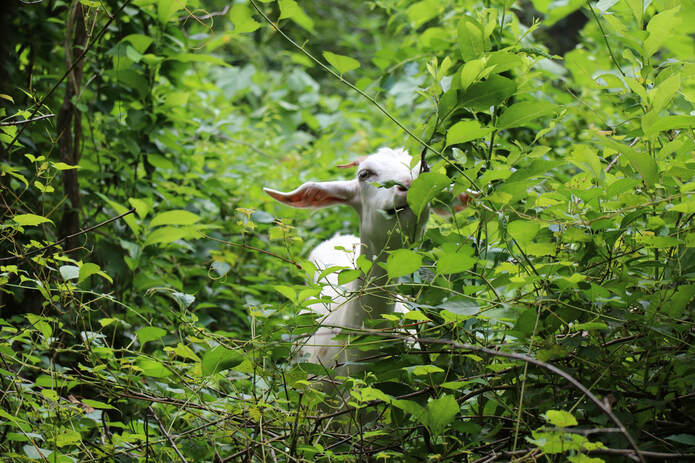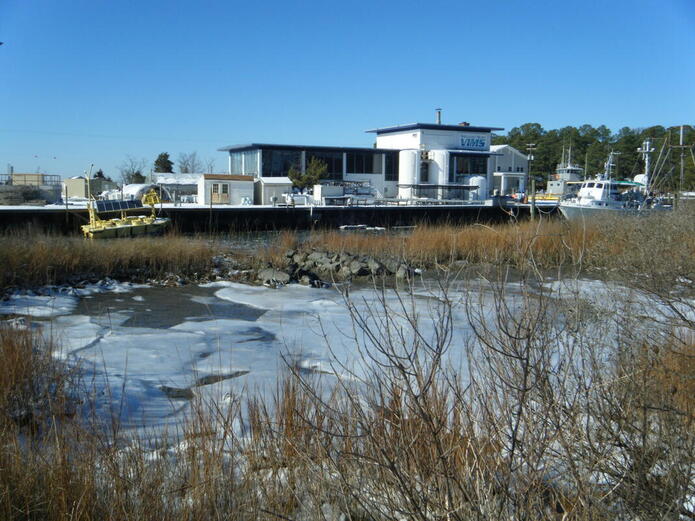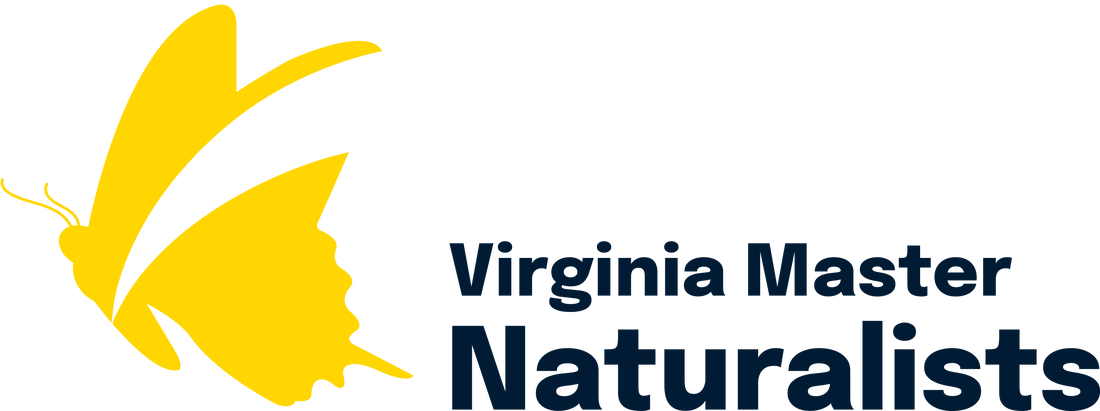Highlights from Virginia Department of Enviromental Quality - Salt Management & Volunteer Water Monitoring
Virginia’s Salt Management Strategy
By Anissa Rafeh and Ann Regn, DEQ
The Virginia Salt Management Strategy (SaMS) was established by a diverse group of stakeholders coordinated by the Virginia Department of Environmental Quality (DEQ). SaMS provides recommendations for improving winter practices through efficient and effective salt use while maintaining the same levels of safety. The strategy also offers ways to raise awareness of these impacts, how individuals and organizations can participate, guidance for water quality monitoring and research to support action. The focus of SaMS is to balance the unintended impacts of salt use with the important safety benefits in Northern Virginia. For more information, visit DEQ’s webpage.
Citizen Monitors Make an Impact on Virginia’s Waters
By James Beckley, DEQ
A record number of locations are being sampled by Virginia’s citizen water quality monitors. DEQ estimates last year that more than 1,290 volunteers spent over 81,000 hours and drove 450,000 miles last year to collect and analyze water quality samples—a contribution of more than $3.25 million. To learn more about citizen monitoring, grant opportunities, how to nominate new sampling locations, guidance for Virginia’s new bacterial standards, or to sign up for the newsletter, visit the DEQ Citizen Monitoring homepage.
Virginia’s Salt Management Strategy
By Anissa Rafeh and Ann Regn, DEQ
The Virginia Salt Management Strategy (SaMS) was established by a diverse group of stakeholders coordinated by the Virginia Department of Environmental Quality (DEQ). SaMS provides recommendations for improving winter practices through efficient and effective salt use while maintaining the same levels of safety. The strategy also offers ways to raise awareness of these impacts, how individuals and organizations can participate, guidance for water quality monitoring and research to support action. The focus of SaMS is to balance the unintended impacts of salt use with the important safety benefits in Northern Virginia. For more information, visit DEQ’s webpage.
Citizen Monitors Make an Impact on Virginia’s Waters
By James Beckley, DEQ
A record number of locations are being sampled by Virginia’s citizen water quality monitors. DEQ estimates last year that more than 1,290 volunteers spent over 81,000 hours and drove 450,000 miles last year to collect and analyze water quality samples—a contribution of more than $3.25 million. To learn more about citizen monitoring, grant opportunities, how to nominate new sampling locations, guidance for Virginia’s new bacterial standards, or to sign up for the newsletter, visit the DEQ Citizen Monitoring homepage.
Virginia Department of Forestry Reports on the State of the Forest
By Ellen Powell, DOF
In its 2019 State of the Forest report, VDOF reports activities related to its mission to protect, manage, conserve, and educate about Virginia's forests. Just a few highlights of the report include:
Read the full report!
By Ellen Powell, DOF
In its 2019 State of the Forest report, VDOF reports activities related to its mission to protect, manage, conserve, and educate about Virginia's forests. Just a few highlights of the report include:
- 100th anniversary of Virginia’s State Forest system
- Sustainable Forestry Initiative (SFI) and American Tree Farm System (ATFS) certification of all State Forests
- Introduction of the Hardwood Initiative
- Urban Wood program
Read the full report!
Winter Activities at the Virginia Institute of Marine Science VIMS
by Karen Duhring, Middle Peninsula Chapter Advisor and VIMS-CCRM
Winter activities at the Virginia Institute of Marine Science (VIMS) include several opportunities for Virginia Master Naturalists.
After Hours lecture series
This monthly series of free, public lectures by scientists from VIMS and elsewhere explores hot issues facing the Chesapeake Bay and the ocean. If you cannot attend in person, you can watch these lectures online or view recordings in the Archives at your convenience. Check with your Chapter’s Continuing Education chair to find out if you can earn CE hours for attending or watching these VIMS lectures. Reservations are required due to limited space. Visit the After Hours Lecture Series web site to learn more and to register.
At the Gloucester Point campus:
At the Eastern Shore Laboratory in Wachapreague:
Public & Chapter Tours
Guided tours of VIMS are offered to the public from 10:00 AM – 12:00 PM on select week days each month. Upcoming tour dates: February 7, March 12, April 7, May 5
Each tour includes an overview of VIMS, a guided tour of the Visitors Center and aquariums, and two of our research laboratories with scientist interactions. Tours are designed for adults. Children must be at least 9 years old to attend. Space is limited and registration must be completed at least two days in advance. Visit the events calendar for more information and tour registration.
Visit our Group Tours page to learn more about private VIMS tours for groups of 12 or more. Virginia Master Naturalist Chapter field trips can also be arranged with the entire focus on coastal ecosystems. To arrange for a guided tour of the VIMS Teaching Marsh and other coastal habitats at the Gloucester Point campus, contact Karen Duhring at [email protected] or 804-684-7159.
Volunteering
Volunteer positions are available with the VIMS outreach and educational programs and occasionally with specific research programs. Visit the William & Mary Volunteer Portal to view the available volunteer positions. If you are interested in one or more positions, click the Apply button next to the position. Once you apply, the coordinator for that position will contact you.
Requirements for each volunteer position vary, but general requirements for all VIMS volunteers are below:
General Education
Sign up to receive monthly VIMS e-Tidings for updates and news about what’s happening in the world of coastal and marine science. If the winter weather has you stuck indoors, browse the VIMS Bay Info web site for topics and information that will improve your knowledge of Virginia’s coastal and marine resources. Or take a virtual tour of the Teaching Marsh, a 1-acre tidal wetland demonstration habitat.
by Karen Duhring, Middle Peninsula Chapter Advisor and VIMS-CCRM
Winter activities at the Virginia Institute of Marine Science (VIMS) include several opportunities for Virginia Master Naturalists.
After Hours lecture series
This monthly series of free, public lectures by scientists from VIMS and elsewhere explores hot issues facing the Chesapeake Bay and the ocean. If you cannot attend in person, you can watch these lectures online or view recordings in the Archives at your convenience. Check with your Chapter’s Continuing Education chair to find out if you can earn CE hours for attending or watching these VIMS lectures. Reservations are required due to limited space. Visit the After Hours Lecture Series web site to learn more and to register.
At the Gloucester Point campus:
- January 30 Expedition Nepal
- February 27 Plastics in the Ocean
At the Eastern Shore Laboratory in Wachapreague:
- February 5 Ghost Forests of the Chesapeake Bay
Public & Chapter Tours
Guided tours of VIMS are offered to the public from 10:00 AM – 12:00 PM on select week days each month. Upcoming tour dates: February 7, March 12, April 7, May 5
Each tour includes an overview of VIMS, a guided tour of the Visitors Center and aquariums, and two of our research laboratories with scientist interactions. Tours are designed for adults. Children must be at least 9 years old to attend. Space is limited and registration must be completed at least two days in advance. Visit the events calendar for more information and tour registration.
Visit our Group Tours page to learn more about private VIMS tours for groups of 12 or more. Virginia Master Naturalist Chapter field trips can also be arranged with the entire focus on coastal ecosystems. To arrange for a guided tour of the VIMS Teaching Marsh and other coastal habitats at the Gloucester Point campus, contact Karen Duhring at [email protected] or 804-684-7159.
Volunteering
Volunteer positions are available with the VIMS outreach and educational programs and occasionally with specific research programs. Visit the William & Mary Volunteer Portal to view the available volunteer positions. If you are interested in one or more positions, click the Apply button next to the position. Once you apply, the coordinator for that position will contact you.
Requirements for each volunteer position vary, but general requirements for all VIMS volunteers are below:
- Be at least 16 years of age
- Complete safety training with the VIMS Safety Office before conducting any work as a volunteer
- Complete required volunteer paperwork (check-in form, liability waiver, emergency contact information)
- A volunteer position may require you to commit to a certain number of hours, such as two hours per week, 15 hours per year, or more regular hours during a certain timeframe (summer, specific sampling period, etc.)
General Education
Sign up to receive monthly VIMS e-Tidings for updates and news about what’s happening in the world of coastal and marine science. If the winter weather has you stuck indoors, browse the VIMS Bay Info web site for topics and information that will improve your knowledge of Virginia’s coastal and marine resources. Or take a virtual tour of the Teaching Marsh, a 1-acre tidal wetland demonstration habitat.




 RSS Feed
RSS Feed